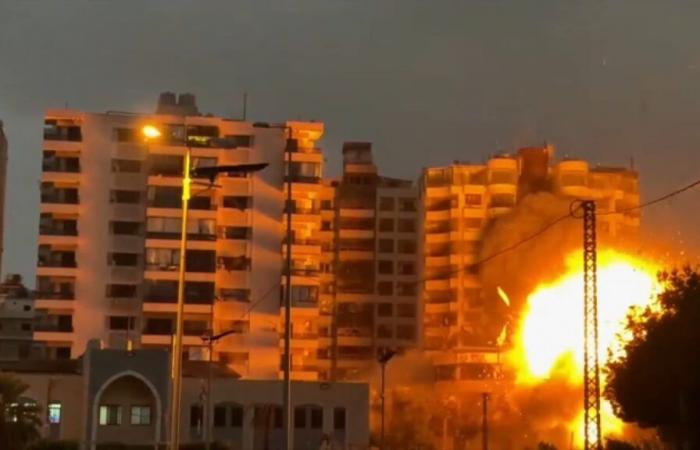An agreement on a ceasefire appears imminent between Lebanon and Israel. The Israeli security cabinet must rule this Tuesday evening on the consequences of the war against Lebanese Hezbollah. In the meantime, IDF strikes are intensifying: 31 people were killed Monday in Israeli army bombings on Lebanon.
An agreement towards a ceasefire between Hezbollah and Israel, in Lebanon, is finally taking shape. If Lebanese and Israeli officials are most vocal about the imminence of the agreement, the United States calls for caution and believes that such an agreement “is close”. France speaks of “significant progress” and calls on Israel and Hezbollah to seize this opportunity “as quickly as possible”.
The Israeli security cabinet could decide on a ceasefire this Tuesday evening. If it is sealed, it is based on a draft American agreement: it provides for the withdrawal of the Israeli army and Hezbollah from South Lebanon, to let the regular Lebanese army deploy there within 60 days.
Five countries, including France, responsible for ensuring compliance with the ceasefire
According to the vice-president of the Lebanese Parliament, the agreement also provides for the establishment of a committee of five countries responsible for ensuring compliance with the ceasefire. A committee chaired by the United States, of which France would be a member. The creation of this monitoring group was one of the points of tension in the agreement, as was the timetable for the withdrawal of Israeli troops and the return of displaced populations.
For the Lebanese, this ceasefire is the hope of silence with the end of the bombings, the crash of the bombs and the hum of the Israeli horns. “For two months, we have only heard that,” breathes Leila, who fled Nabatieh in the south to reach Beirut.
“If there is a ceasefire, the next day, I will go to the south, to make sure that my apartment is still standing, to have the joy of seeing my neighborhood again and to return to my land. I believe in it , I want it to work, but I’m wary because there are always surprises,” she assures RMC.
Israel does not refrain from bombing South Lebanon despite a future agreement
Distrust crushes hopes of calm for Nicolas, who lives near the southern suburbs of Beirut, shelled for weeks. “It doesn’t stop, I don’t believe in the peace of these people, they want to conquer,” he believes.
Israel's objective was to annihilate Hezbollah but the armed group still lives, underlines Sébastien Boussois, specialist in the Middle East, who specifies: it is not a question of long-term peace but of a fragile status quo: “With little return from diplomacy to resolve the underlying problem, all the ferment is still present for there to be a slip-up at one point or another.”
Israel has already warned, through its representative at the United Nations: the Jewish state retains the possibility of striking southern Lebanon, even in the event of an agreement. Within the Israeli government, the idea is not only being emulated. A ceasefire would be “a big mistake” according to Israeli National Security Minister Itamar Ben Gvir. And while waiting for peace, Israel continues to bomb Lebanon. IDF airstrikes killed 31 people on Monday alone.
Hélène Terzian and Marion Gauthier with Guillaume Dussourt






